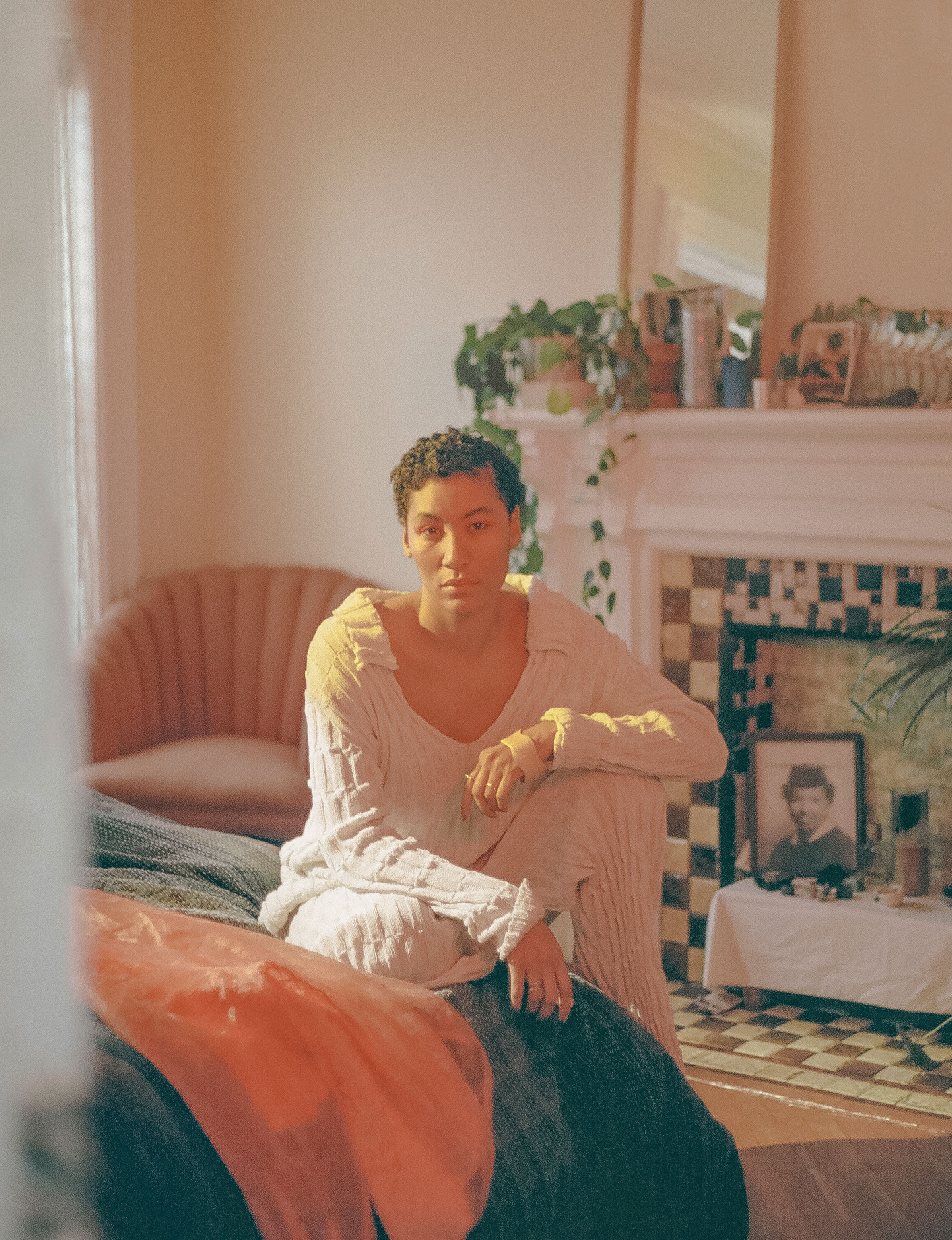
So much happens in Naima Ramos-Chapman’s 2016 short film, And Nothing Happened—so much, and so slowly. Like a dream, ceilings crack open, bodies disappear. An unnamed young woman, played by Ramos-Chapman, eats, then doesn’t; masturbates, then eats. She stares blankly at her Jungian animus—a boy-self. Something like two days pass; eventually, she recounts to an unceremoniously cheerful lawyer the sexual assault that sent her here, back home with her mother, strange and sedate.
Mostly, she says nothing because, Ramos-Chapman tells me, “Spoken language can be limiting. But I think sitting, listening, being with someone: there’s so much there. The films that typically move me are often about what’s not said.” Silence is metonymic for whatever’s stirring beneath it, like water. Ramos-Chapman thinks like water.
And the day we speak, it’s raining, unseasonably wet for a Miami autumn. “This weather sucks,” I text her. We don’t meet up at the park, like we’d planned. We talk on the phone; I watch the rain. She’s here working on another short film. Ramos-Chapman stays busy. The New York artist and filmmaker is also a director and writer; she is sometimes an editor for, and occasionally actor in, Random Acts of Flyness, the HBO show directed by her partner, Terence Nance (you may remember the heartbreaking musical segment she directed for Episode 2, “Nuncaland”). Her film, Piu Piu, since premiering at BlackStar Film Festival in 2018, has been traveling the festival circuit, having already screened at the Tacoma Film Festival and Urbanworld to name a few others, and is scheduled to screen at Slamdance this year.
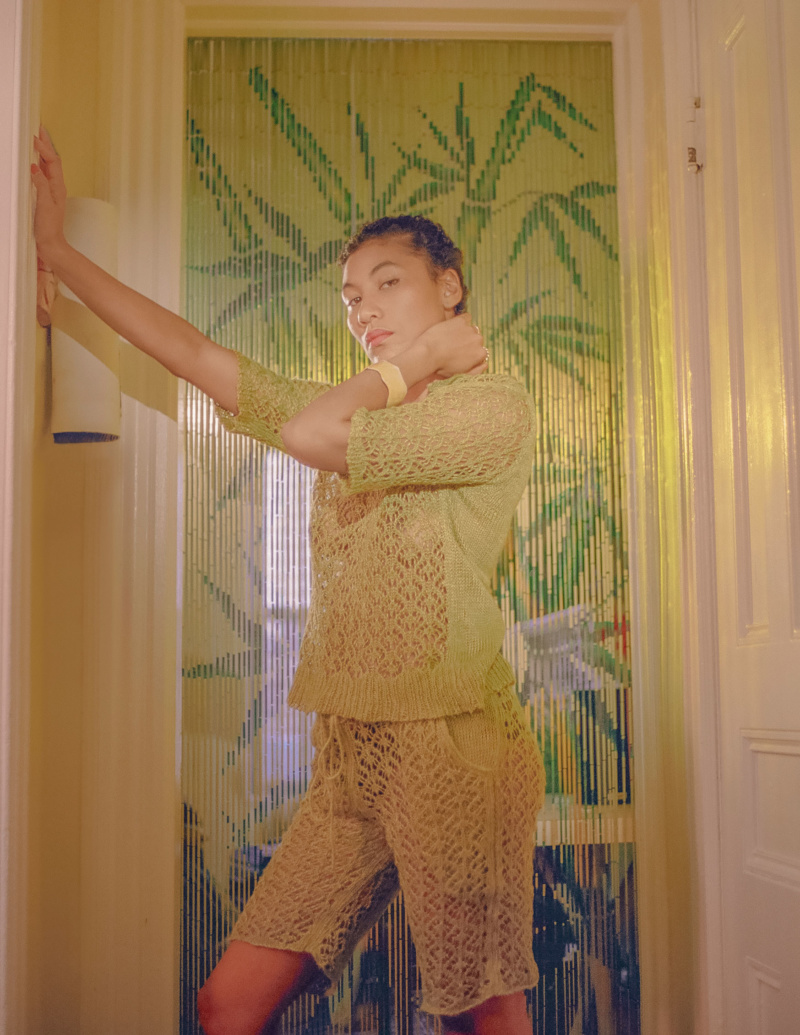
In 2017, she was a fellow at the Sundance Institute for Screenwriting Intensive and worked on her feature-length script, Yeve, or Sad Songs in Languages I Don’t Understand, currently in development. All of this happened after years of working with other mediums, including writing— which is likely why she’s a generous interview subject. She likes to work with other people and share the process, even now. “What’s it like,” she muses, “to create a film in which you facilitate a space, hand off directorial duties, ask other people to shift the perspective? Capitalism, and even the film industry, thrive on making it all about an individual, pretending it didn’t take so many different minds to make it.”
Ramos-Chapmans talks an endless stream, a flow. “Sorry,” she says, after everything, “that was a ramble.” She is tireless, and tireless at imparting her energy to you. She brings you along: to Flatbush, Brooklyn, where she grew up (“The pace was different from other parts of New York. Things would move a little slower.”) To Howard University, a “difficult two years I’m very thankful for—you learn how to talk, exist, collaborate.” To her childhood living room, watching Turner Classic films with her mother. Her words are a stream-of-consciousness, touching all the crevices. Even at her most social and collaborative, she is naturally singular. She grew up that way: not solitary, but preternatural, genuinely weird. “I’d go to elementary school dressed as the Fonz, saying ‘’Eyyy!’” she laughs. “I got made fun of. It was too old a reference for people around me to understand.”
Ramos-Chapman attended dance classes at age two; she was subsequently kicked out for being too rambunctious a toddler, but later excelled. “The joke was on them,” she says. She was a strong dancer, able to jump and turn with a kind of speedy precision. “I got to the top level, but my teachers said I was not the right size to be in a company. I had broader shoulders. I was taller. A lot of racialized stuff would happen in ballet—the tights are not your skin color; hearing that your hips and butt are too big can be really demoralizing.”
After attending The Alvin Ailey School for Dance on scholarship for four years, a stint in journalism and an apprenticeship at The Barrow Group for Acting, she arrived at filmmaking—partially encouraged by Nance, who produced and DP’d her first short film. Filmmaking felt like the best fit: a practice that allowed her to write, perform, and engage in her own authorship. “Performance and storytelling, to me, don’t feel that different,” she explains. In Piu Piu, which screened at the 2019 Slamdance Film Festival in Park City, Utah, a woman is followed silently by a man; fear and paranoia become dancing monsters, more gestures than bodies. It is, in some ways, a sequel to And Nothing Happened, where trauma becomes languid, banal dejection. Heartsore and still moving, albeit like molasses.
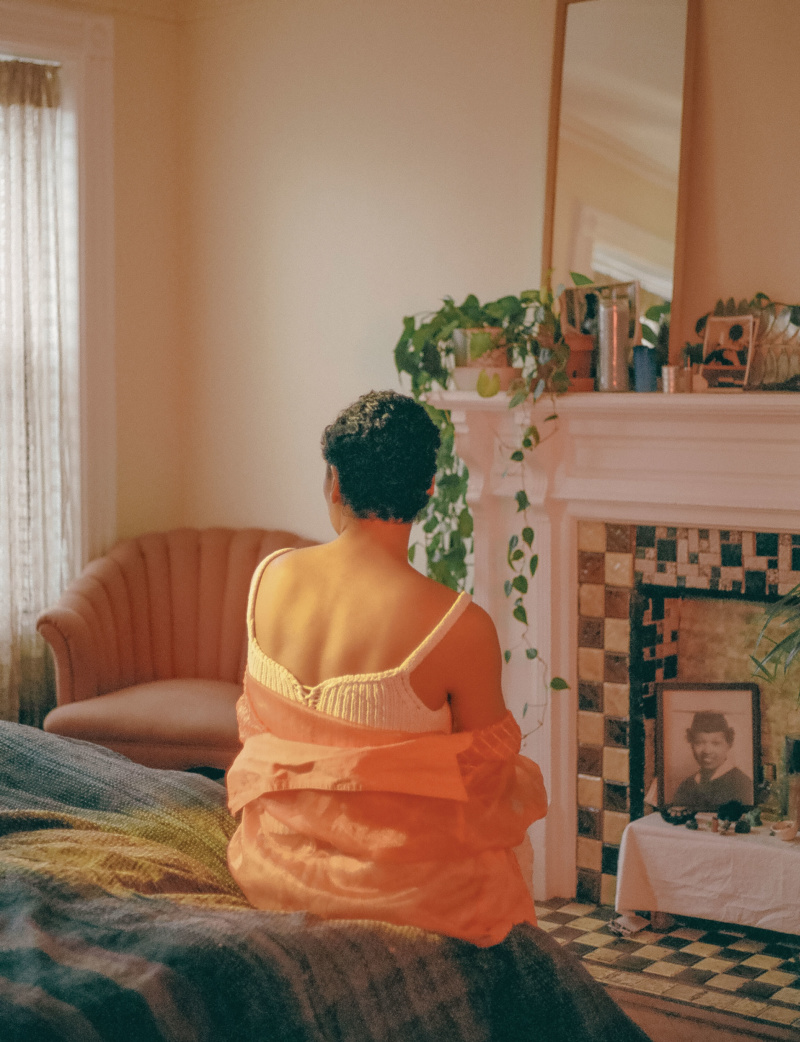
It’s not always the catalyst for pain that deserves screen time, says Ramos-Chapman. “When I watch films, and something brutal happens, I want to know how the person feels. How they’re recovering. The worst part of my own assault wasn’t the 20 seconds it took for it to happen— it’s how it embedded into my psyche.” She adds: “Sometimes terrible things happen and you can still experience joy—beauty—saddled up alongside tragedy.”
After And Nothing Happened’s release, Ramos-Chapman received emails of gratitude. Fans told her they’d related to the film in how it is plain and surreal, the way trauma is both. “I feel like so many of the horrors in the world are because people are not interested in being introspective, in sitting down and dealing with what’s happening inside,” she says. Ramos-Chapman’s favorite filmmakers deal with what she describes as the ontological nature of being: she names Arthur Jafa, Julie Dash, Charles Burnett.
Also, Mister Rogers—Fred McFeely Rogers—who once asked children, “What do you do with the mad that you feel?” “Oh my god, did you see Won’t You Be My Neighbor?, the Mister Rogers documentary?” she asks, suddenly. “I want to be like him. Dedicated to honoring people’s feelings.” When we were both little, Mister Rogers made us feel less alone in the largesse of our emotions, our physical smallness. “We’re all channels,” she says.
On cue, the sun came out and spread its rays like a blanket. The rain stopped, she kept flowing. “Sometimes we get things right. Some things we say are honest, true and godlike.”



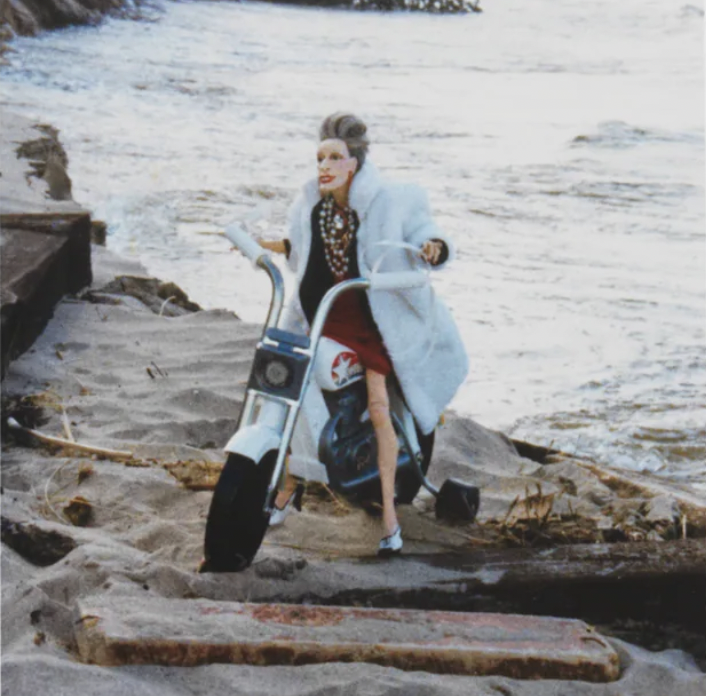


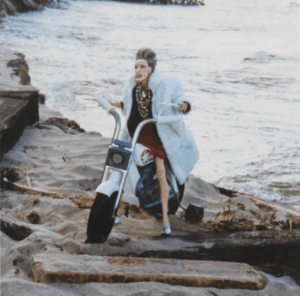



 in your life?
in your life?

